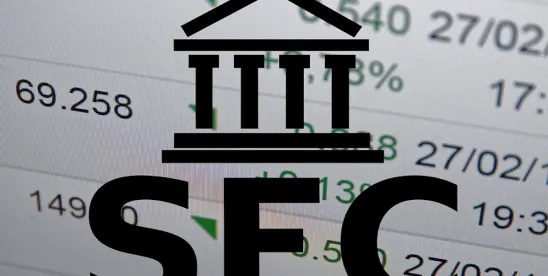On October 21, the U.S. Securities and Exchange Commission (SEC) Division of Examinations published its 2025 Examination Priorities, outlining the main areas of interest for the Division in its examinations of regulated entities during the upcoming year.
The 2025 Examination Priorities provide key insights for market participants into the areas where the Commission has identified risk and potential harm for investors. The Division releases its annual Examination Priorities in hopes that registrants will address any compliance issues in order to better protect investors and maintain fair markets. The priorities outline both longstanding and emerging risks relevant to investment advisers, investment companies, broker-dealers, clearing agencies, and self-regulatory organizations.
The 2025 Examination Priorities also provide information about the types of rules violations that the SEC is focused on detecting and preventing. Not every regulated entity is examined every year, and so whistleblowers can play a key role in those detection and prevention efforts by reporting violations to the Commission.
The SEC Division of Examinations’ 2025 Examination Priorities include:
- Adherence to Fiduciary Standards of Conduct: The Division will focus on whether advice regarding products, investment strategies, and account types satisfies RIAs’ fiduciary obligations to their clients. Specific areas of interest will include “recommendations related to: (1) high-cost products; (2) unconventional instruments; (3) illiquid and difficult-to-value assets; and (4) assets sensitive to higher interest rates or changing market conditions.”
- Form CRS: The Division will review how a BD describes “(1) the relationships and services that it offers to retail customers; (2) its fees and costs; and (3) its conflicts of interest, and whether the broker-dealer discloses any disciplinary history.”
- Information Security and Operational Resiliency: The Division will examine market participants’ cybersecurity, compliance with Regulations S-ID and S-P, as well compliance with new rules which reduced the standard settlement cycle for most securities to T+1.
- Emerging Financial Technologies: The Division “remains focused on registrants’ use of certain services, such as automated investment tools, AI, and trading algorithms or platforms, and the risks associated with the use of emerging technologies and alternative sources of data.”
In instances where they learn of non-compliance with SEC regulations, whistleblowers will play a key role in fostering transparency and accountability. Through the SEC Whistleblower Program, individuals may anonymously report potential securities violations and qualify for monetary awards.
Notably, compliance personnel may qualify under the SEC Whistleblower Program under specific circumstances. The program normally excludes individuals who learn of securities violations because they are an employee whose principal duties involve compliance or internal audit responsibilities. However, under the program’s “120-day rule,” a compliance official may qualify if they first report the misconduct internally and then wait 120 days before contacting the Commission.
Individuals considering blowing the whistle to the SEC should first consult an experienced SEC whistleblower attorney to ensure they are fully qualified.





 />i
/>i

